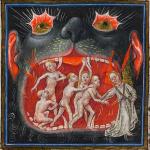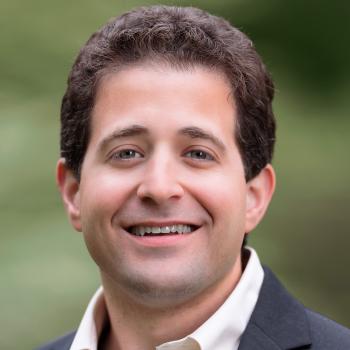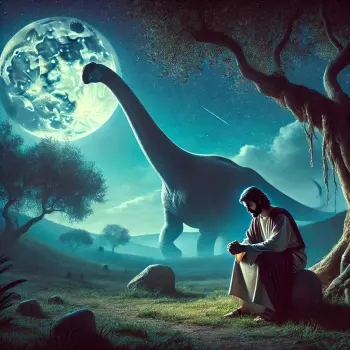New Theology? Ask Ilia Delio
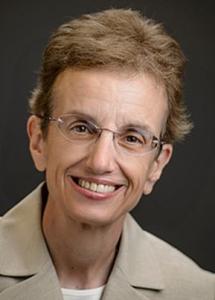
Do you remember when we served wine in a wineskin? When we’d swig wine from a leather pouch? No, I don’t remember that either. I’m used to bottles. Even so, we typically discard or even recycle the bottle once we’ve sipped and enjoyed the wine. New wine deserves a new bottle. Right?
Does this apply to theology as well as wine? We ask this because Jesus said a new understanding of God deserves a new wineskin (Mark 2:22). Did I get Jesus right? Does it follow that we need a new theology for a new situation?
Yes, indeed! At least according to rock star Roman Catholic theologian, Ilia Delio. We have a “need for a new theology,” declares the Villanova professor, “one that aligns with our current understanding of cosmology, evolution and quantum physics.”
The old wine, we might surmise, is out of sync with current cosmology, evolution, and quantum physics. Call the sommelier! Ask for new theology served in new wineskins! Or a new bottle!
“If the Church is to do more than merely survive, we need a new theological vision, a new religious spirit, one that animates our lives, draws us into community and instills a zest for all planetary life.”
Let’s ask Ilia Delio about new theology in new wineskins.
Meet Ilia Delio
Ilia Delio is a Franciscan Sister of Washington, DC. She currently holds the Josephine C. Connelly Endowed Chair in Theology at Villanova University.
Before becoming a professor, she earned two doctorates. One Ph.D. is in pharmacology from Rutgers University-School of Healthcare and Biomedical Sciences. The second in Historical theology is from Fordham University. Dr. Dr. Delio is the recipient of a Templeton Course in Science and Religion award and the author of seventeen books. And this hybrid scientist-theologian is still writing.
Follow her online column, Center for Christogenesis.
Question 1. Since Pope Leo XIII, the Roman Catholic Church has mandated that the theology of St. Thomas Aquinas (1225-1274) be taught as its official theology. Do you consider Thomas to be old wine in an old wineskin? What needs to get modernized in new theology?
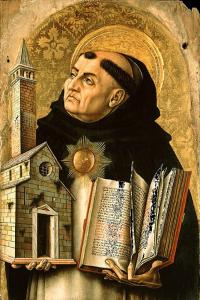
Ilia Delio. Yes, essentially Thomas’s metaphysics of Being is a metaphysics of the eternal present. I do not think that primary and secondary causality are tenable in light of quantum entanglement.
Quantum reality posits a world of interrelatedness such that relationship is the basis of existence, including God. In this respect, real relationship cannot be one-sided, from God to world. Rather, it must be mutual, especially if consciousness is the basis of relationship.
I respect the brilliance of Thomas Aquinas. But he does not provide a robust metaphysics for a quantum world in evolution.
Then we have the issue of original sin and evolution. The church posits an ambivalent if not dualist position, described by Pope Pius XII in his encyclical, Humani Generis (Paragraphs 36, 37): The material body may come about through evolution, says the pontif. But he adds that the soul is created immediately by God. Here evolution is jettisoned and replaced by special creation.
Further, the church adheres strictly to the doctrine of monogenism (Adam and Eve as the source of original sin) and disavows any type of polygenism. Teilhard de Chardin felt that the doctrine of original sin was a straitjacket and thwarted the impulse of evolution toward greater consciousness and complexity. Monogenism is incompatible with evolution.
Question 2. In 2015 Pope Francis released the widely lauded encyclical, Laudato Si, addressing the environmental crisis and the struggle of the poor. What criticisms do you have of this document?
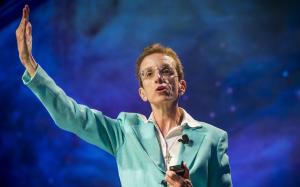
Ilia Delio. I find Pope Francis theologically ambivalent in Laudato Si’. On the one hand he acknowledges a God who limits divine power in order for something new to come into existence. Hence, the humility of God. The pope acknowledges evolution as well. Good. On the other hand, he writes: “The best way to restore men and women to their rightful place, putting an end to their claim to absolute dominion over the earth, is to speak once more of the figure of a Father who creates and who alone owns the world” (75). Huh??
When it comes to the human person, the evolutionary paradigm is jettisoned for special creation and divine intervention. The pope states:
“Human beings, even if we postulate a process of evolution, also possess a uniqueness which cannot be fully explained by the evolution of other open systems. . . . Our capacity to reason, to develop arguments, to be inventive . . . are signs of a uniqueness which transcends the spheres of physics and biology. The sheer novelty involved in the emergence of a personal being within a material universe presupposes a direct action of God and a particular call to life” (81, emphasis added).
Francis reaffirms the position of Pope Pius XII, who wrote in Humani generis that the human body may come about by way of evolution but the soul is created immediately by God (36).
Despite the fact that Pope Francis relies on Teilhard de Chardin with regard to the Eucharist — the Eucharist as a living center of the universe, “an act of cosmic love” which is celebrated “on the altar of the world” (236) — the pontif affirms that “Christian thought sees human beings as possessing a particular dignity above other creatures” (119). Now, Teilhard saw thought as the fundamental basis of the human phenomenon. That is, Teilhard saw consciousness and matter as two aspects of the same reality. So, it appears Pope Francis is a dualist while Teilhard is a holist. If Christianity is to get on board with modern science [although it may be too late], then its metaphysics must give way to panpsychism or a model of unified matter and mind, perhaps similar to David Bohm’s implicate order.
What I find missing from Laudato Si’ is the 13.8 billion year old Big Bang universe story or what is known today as “Big History,” which examines history from the Big Bang to the present using a multidisciplinary approach. This is the story of the modern human person who has emerged slowly, over deep time, through complex levels of biological evolution.
With Big History in the backdrop, I find Liberation theology too small in its overall aim. Liberation theology is too anthropocentric and must be reframed as cosmic liberation, if the structures of injustice are to be reconciled toward integral wholeness.
Question 3. Why do you assert that sciences such as cosmology, evolution and quantum physics should become incorporated into a new theology?
Ilia Delio. Honestly, this is no longer a question for me. I think we should abandoned the language of science and religion and reframe these areas of knowledge within a new integral paradigm of relational holism.
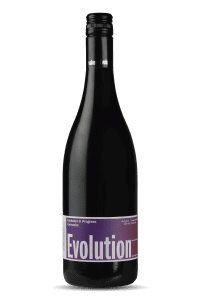 Question 4. Both evolutionary theory and quantum physics teach us that the natural world is through-and-through a relational nexus, wherein everything is interdependent. What might this observation contribute to the new theology you envision?
Question 4. Both evolutionary theory and quantum physics teach us that the natural world is through-and-through a relational nexus, wherein everything is interdependent. What might this observation contribute to the new theology you envision?
Ilia Delio. Everything. Relationship is the name of the game, the operative hermeneutic, the basis of all existence. I am trying to form a new paradigm of relational holism, that is, to see all that exists in relation to the whole; the personal whole, the communal whole, the cosmic whole. Wholes within wholes. God is the transcendent ground of wholeness.
Question 5. Might your call for a new theology apply as well to the Protestant, the Orthodox, and the Syriac communions?
Ilia Delio. Absolutely. What we call theology is now history. To really engage in a vital theology, everything, including God, must be revisited in light of evolution and quantum physics.
I am also sympathetic to Alfred North Whitehead’s insight, namely, “religion must face change in the same spirit as science. Its principles may be eternal, but the expression of religious principles requires continual development.” Theology has fallen so far behind [in fact, all monotheistic religions] that it will take a seismic shift – a revolution – to get theology on the same train with science and technology.
Question 6. What else would you like to say about new theology?
Ilia Delio. Oh, a lot! You may find my new book The Not Yet God: Carl Jung, Teilhard de Chardin and the Relational Whole has some of my latest thinking. I am sure it will rock a few boats!
More than just hermeneutics
Here’s what Professor Delio says about God in her new book, The Not Yet God.
“The quantum world evokes the new mystic, one who dreams from a deeper center and loves from an unknown spring of life, for the mystic already lives in the world of tomorrow” (Delio 2023, 35).
Yes, that rocks my boat. Delio finds a relationalist ontology for her new theology in quantum entanglement. My own work with physicist Carl Peterson has rocked and rolled on these quantum waves as well. But, I’d rather not go there now.
Rather, while rocking, let me muse a moment about the hermeneutics of modern theology in general to see where Delio fits.
Modern theology – including modern Roman Catholic theology – is typically structured hermeneutically (Peters 2015, Chapter 2). That is, the essence of the Christian faith first formulated in a culture now long out of date gets reinterpreted in light of contemporary culture. What we find in our contemporary culture is scientific understanding allied with the worldwide cry for freedom.
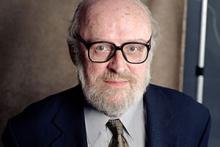
One prominent Roman Catholic theologian, University of Chicago’s David Tracy, speaks succinctly on this hermeneutical task. “The major task of the systematic theologian is the reinterpretation of her or his tradition for the present situation” (Tracy 1983, 9). Note that Tracy asks for a “reinterpretation” of the ancient formulation of the faith. Not a replacement. Not a new theology packaged in a new wineskin.
Similarly, Victor Manuel Fernández, the prefect of the Vatican’s Dicastery for the Doctrine of the Faith, avers that theological thought “necessarily plunges into the inescapable context of the life of those people who are enlightened by the revealed Word and in turn challenge it so that they bring out more and more of their own richness.”
In short, this hermeneutical approach would proffer a mutually critical correlation between the classic formulation of the Christian faith in Scripture with the contemporary context, replete with Big Bang cosmology, evolution, and quantum physics.
Now, I ask: does the new theology Ilia Delio is calling for go beyond this hermeneutical reinterpretation? Is she asking that we discard the old wine bottle, Thomas Aquinas, and serve only the wine of a newly contextualized and scientized theology?
The Creative Mutual Interaction between Cosmology and Theology
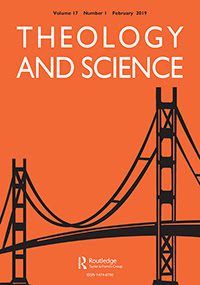
Here in Berkeley at the Center for Theology and the Natural Sciences (CTNS), hybrid physicist-theologian Robert John Russell‘s hermeneutic gets the name, Creative Mutual Interaction. We use the bridge metaphor, identifying two way traffice from science to theology and from theology to science.
“In many ways the bridge is now complete, and we can concentrate fully on the rich opportunities and challenges brought on by the flow of knowledge and vision in both directions across the bridge: the creative mutual interaction between theology and science”(Russell, 2).
I wonder about a couple things. Would Dr. Dr. Delio think of her new theology as two directional or only one directional, traveling only from science to theology? What might she say, as a theologian, to the scientist?
Is Thomas Aquinas really a discardable old bottle?
In the era of Thomas Aquinas twelve centuries after Jesus, he was dubbed a “modern” theologian. Thomas had reinterpreted the biblical message within his context of growing interest in Aristotelian and related philosophies. This makes Thomas’ work contextual, perspectival, and temporal. His Summa Theologica is by no means eternal, absolute, or unchanging.
Ilia Delio is right, then, when she points out the difficulties of reconciling Thomas’ metaphysics of Being with contemporary quantum physics, according to which all things in reality must be seen as relational. Yes, a new theology needs to engage in relationalist worldview construction.
But I shudder to think that I would take a vintage bottle of Thomistic Cabernet Sauvignon and throw it into the recycle bin without having savored the last drop.
Conclusion
I for one find Ilia Delio’s new theology akin to a barrell fermenting cuvee. My nose and palate are already tantilized by its herbaccous bouquet. Yes, indeed, the vinification of today’s new theology must breathe deeply the atmosphere of cosmology, evolution, and quantum physics. We at the Center for Theology and the Natural Sciences in Berkeley have been inhaling the scientific worldview for more than four decades now. I thank Professor Delio for her creative contribution to new theology that is scientifically informed.
ST 2008 Illia Delio
▓
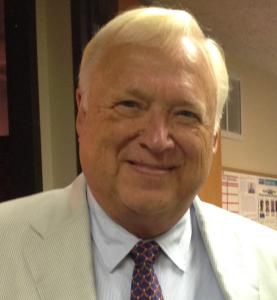 Ted Peters (Ph.D., University of Chicago) is a public theologian directing traffic at the intersection of science, religion, and ethics. Peters is an emeritus professor at the Graduate Theological Union, where he co-edits the journal, Theology and Science, on behalf of the Center for Theology and the Natural Sciences, in Berkeley, California, USA. He recently co-edited Astrobiology: Science, Ethics, and Public Policy (Scrivener 2021) as well as Astrotheology: Science and Theology Meet Extraterrestrial Intelligence (Cascade 2018). He also co-edited Religious Transhumanism and Its Critics (Lexington 2022) and The CRISPR Revolution in Science, Ethics, and Religion (Praeger 2023). Peters is author of Playing God: Genetic Determinism and Human Freedom (Routledge, 2nd ed, 2002) and The Stem Cell Debate (Fortress 2007). See his blogsite [https://www.patheos.com/blogs/publictheology/] and his website [TedsTimelyTake.com].
Ted Peters (Ph.D., University of Chicago) is a public theologian directing traffic at the intersection of science, religion, and ethics. Peters is an emeritus professor at the Graduate Theological Union, where he co-edits the journal, Theology and Science, on behalf of the Center for Theology and the Natural Sciences, in Berkeley, California, USA. He recently co-edited Astrobiology: Science, Ethics, and Public Policy (Scrivener 2021) as well as Astrotheology: Science and Theology Meet Extraterrestrial Intelligence (Cascade 2018). He also co-edited Religious Transhumanism and Its Critics (Lexington 2022) and The CRISPR Revolution in Science, Ethics, and Religion (Praeger 2023). Peters is author of Playing God: Genetic Determinism and Human Freedom (Routledge, 2nd ed, 2002) and The Stem Cell Debate (Fortress 2007). See his blogsite [https://www.patheos.com/blogs/publictheology/] and his website [TedsTimelyTake.com].
▓
Works Cited
Delio, Ilia, 2023. The Not-Yet-God: Carl Jung, Teilhard de Chardin, and the Relational Whole. Maryknoll NY: Orbis.
Peters, Ted. 2015. God–The World’s Future: Systematic Theology for a New Era. 3rd. Minneapolis MN: Fortress Press.
Russell, Robert John, 2008. Cosmology from Alpha to Omega: the Creative Mutual Interaction of Theology and Science. Minneapolis: Fortress Press.
Tracy, David. 1983. “The Context: The Public Character of Theological Language.” In Talking about God: Doing Theology in the Context of Modern Pluralism, edited by Jr David Tracy and John B Cobb, 1-12. New York: Seabury.



